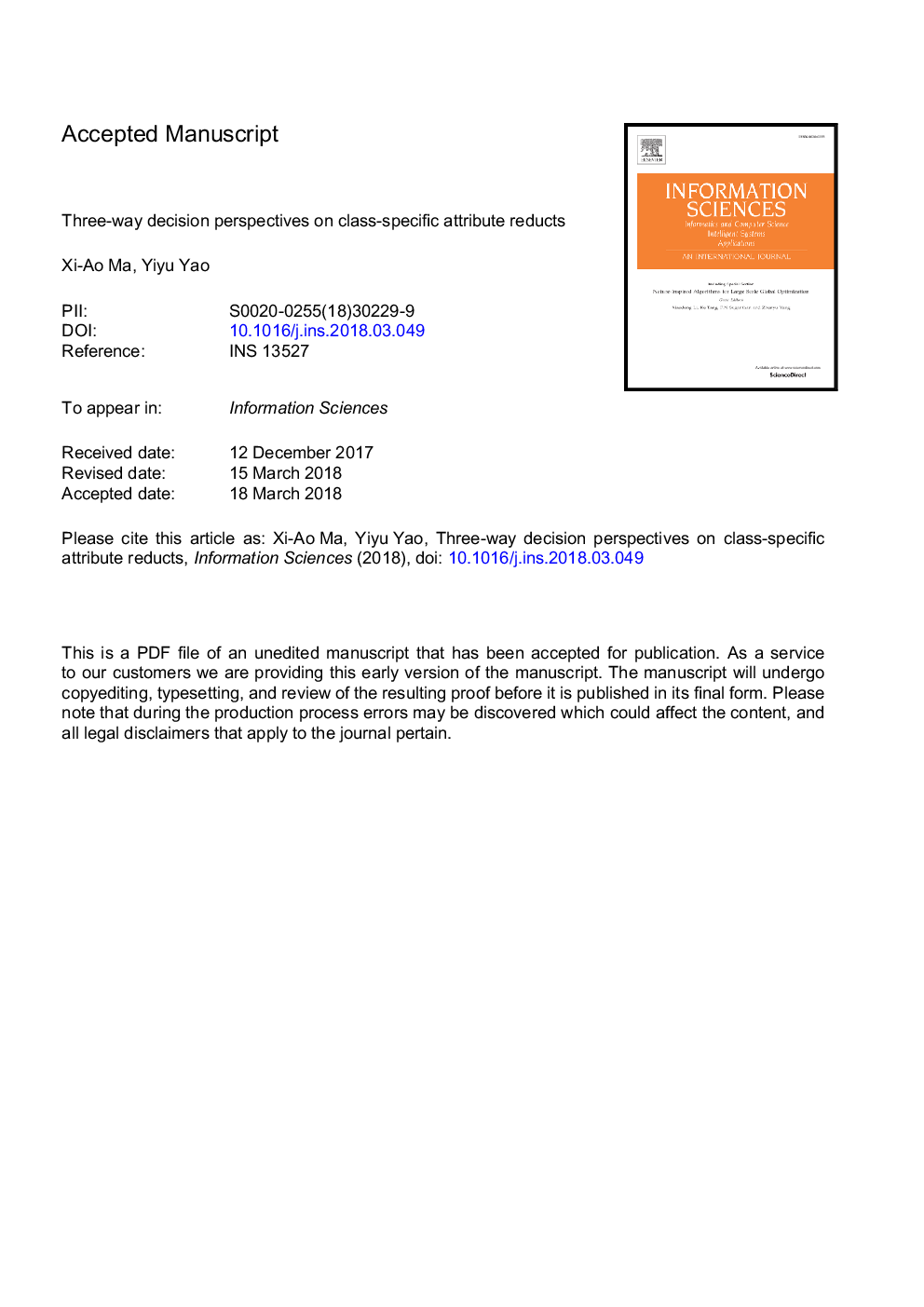| Article ID | Journal | Published Year | Pages | File Type |
|---|---|---|---|---|
| 6856467 | Information Sciences | 2018 | 29 Pages |
Abstract
In rough set theory, a decision class (i.e., a subset of objects) is approximated by three pair-wise disjoint positive, boundary, and negative regions. The concept of three-way decisions is introduced to provide a new interpretation of the three regions. We construct acceptance, non-commitment, and rejection rules, respectively, from the positive, boundary, and negative regions. The notion of class-specific attribute reducts concerns a minimal set of attributes used in constructing such rules. Existing studies on class-specific attribute reducts only consider the positive region and hence only the acceptance rules. In many situations such as medical diagnosis, we are also interested in negative rules or rule-out rules. This motivates the present study on three-way decision perspectives on class-specific attribute reducts. In addition to positive-region based attribute reducts, we study negative-region and positive-and-negative-region based attribute reducts. We investigate relationships among the three types of reducts. Although the three types of reducts are equivalent in consistent decision tables, they are not equivalent in inconsistent decision tables. By extending the framework, we study the three types of class-specific attribute reducts in probabilistic rough set models and their relationships. Finally, we give a general definition of class-specific attribute reducts.
Keywords
Related Topics
Physical Sciences and Engineering
Computer Science
Artificial Intelligence
Authors
Xi-Ao Ma, Yiyu Yao,
